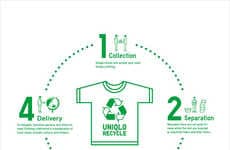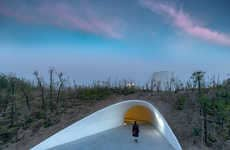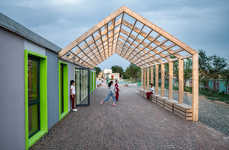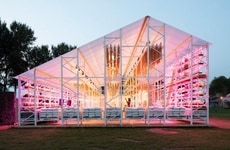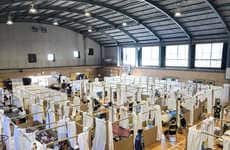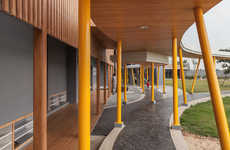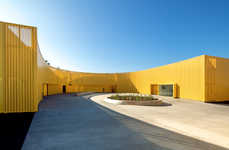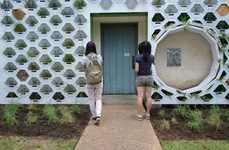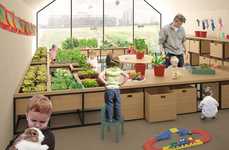

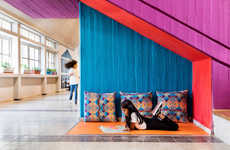

Learning institutions aim to reduce their carbon footprint
Trend - With climate change's impact now visible and only set to worsen over time, schools and other children's centers are aiming to better prioritize eco-friendly designs and programs in order to reduce their impact.
Insight - Consumers, especially those who are parents of young children, are looking to better prepare Gen Z to deal mitigate and deal with climate change, as their generation will be the most affected by its consequences. Making choices that alleviate the impact of global warming not only appeal because they align to this group's values, but also because they help alleviate the guilt experienced by these consumers as a result of ecological anxiety.
Insight - Consumers, especially those who are parents of young children, are looking to better prepare Gen Z to deal mitigate and deal with climate change, as their generation will be the most affected by its consequences. Making choices that alleviate the impact of global warming not only appeal because they align to this group's values, but also because they help alleviate the guilt experienced by these consumers as a result of ecological anxiety.
Workshop Question - How could your brand tackle climate change-focused programs?
Trend Themes
1. Eco-friendly Education - Schools and other children centers prioritize eco-friendly designs and programs to reduce their carbon footprint and better prepare Gen Z to deal with and reduce the impact of climate change.
2. Sustainable Building Designs - Architects and designers create net-zero buildings that emphasize open-concept layouts that maximize vegetation and natural light, and answer to contemporary sensibilities in their appearance.
3. Circular Fashion Economy - Sustainably-minded fashion brands implement clothing recycling programs and repurpose materials to minimize textile waste, while offering incentives to consumers.
Industry Implications
1. Education - Education institutions can implement eco-friendly designs and programs to reduce their carbon footprint and better prepare students for dealing with climate change.
2. Architecture and Design - Architects and designers can create net-zero building designs that maximize vegetation and natural light in open-concept layouts to create sustainable yet modern work and living spaces.
3. Fashion Industry - Fashion brands can implement clothing recycling programs and repurpose materials to minimize textile waste and promote sustainable and ethical practices in fashion.
6 Featured, 53 Examples:
175,572 Total Clicks
Date Range:
Sep 16 — Aug 19
Trending:
Warm
Consumer Insight Topics:



